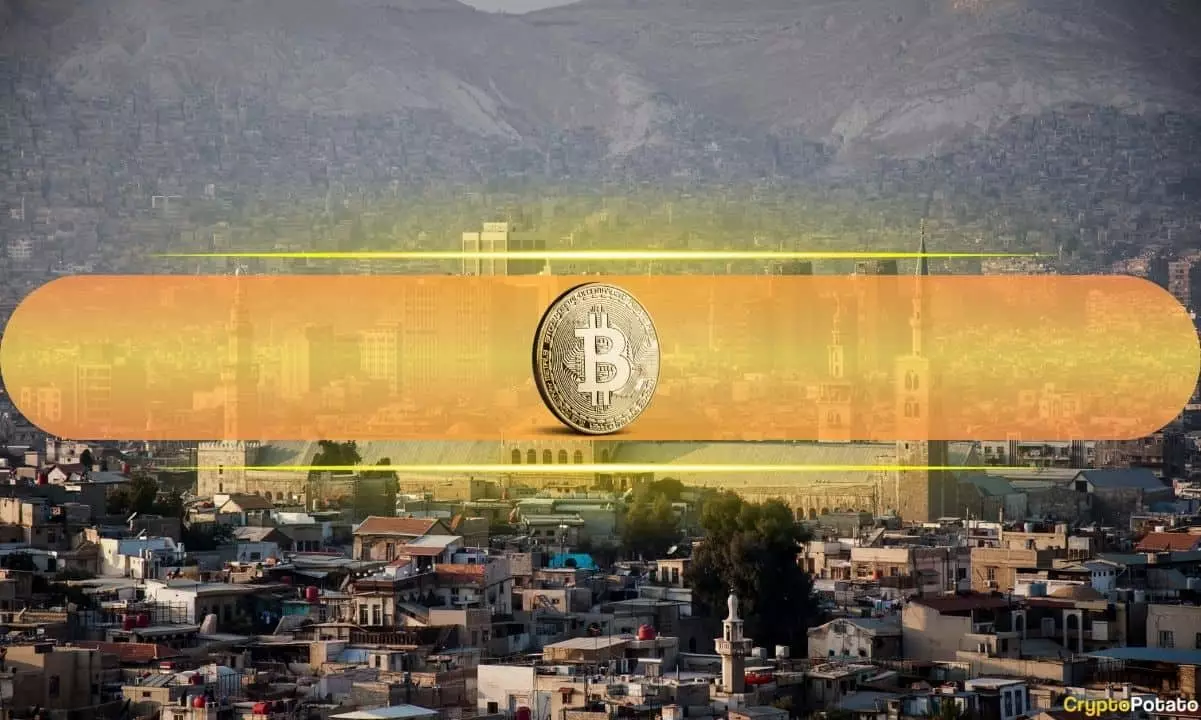In the midst of Syria’s persistent economic floundering, characterized by hyperinflation and a significantly depreciated local currency, the Syrian Center for Economic Research (SCER) has ignited a conversation about a radical shift in financial policy. Their proposal advocating for the legalization of Bitcoin and the digitization of the Syrian pound represents a forward-thinking strategy that seeks to stabilize a nation grappling with turmoil. Although the plan is audacious, it brings forth the potential to reshape the country’s financial landscape, promoting resilience against pressures of inflation and a lack of foreign investment.
At the core of this proposal is a dual approach that addresses both the need for a stabilized currency and the introduction of a robust digital economy. The concept of legalizing Bitcoin involves creating a regulated framework that acknowledges cryptocurrency as a legitimate asset, allowing for the trading, exchange, and mining of such currencies under both local and global regulatory standards. Importantly, this would not merely endorse Bitcoin but also integrate the Syrian pound into the blockchain ecosystem. The proposed transition would see a digital currency minted on a decentralized ledger secured by tangible assets like gold, thus enhancing trust and transparency in transactions.
The overarching ambition is to facilitate financial operations in a highly efficient manner, making transactions more secure while potentially fostering a more dynamic environment for e-commerce and enhancing cross-border remittance capabilities. This comprehensive framework would also seek to modernize banking infrastructures, thus broadening access to financial tools for the average Syrian citizen.
A significant aspect of the SCER’s proposal is its intention to empower local entrepreneurs by promoting a free-market system that mitigates monopolistic influences. By encouraging private property rights and enabling individuals to maintain control over their digital assets, the initiative aligns with global trends that advocate for innovation and entrepreneurship as key drivers of economic development. In a society recovering from conflict, fostering an environment where individuals can freely create and exchange economic value is not just beneficial—it’s essential for growth.
Furthermore, the proposal envisions synergy between traditional financial institutions and emerging blockchain startups. This dual collaboration could spur innovation in financial services, broaden access to funds, and emphasize the importance of digital literacy within the populace, which is crucial for any thriving digital economy.
Despite its promise, the SCER recognizes that the road to implementing such a groundbreaking proposal is fraught with challenges. A significant obstacle is the existing technological infrastructure, which remains underdeveloped due to years of conflict and detachment from global technological advancements. Public awareness and understanding of cryptocurrency and its benefits are also alarmingly limited, necessitating an educational campaign aimed at demystifying digital currencies.
Moreover, geopolitical challenges continue to loom large over Syria’s recovery efforts. The transitional government’s capacity to prioritize such an ambitious financial reform is questionable, particularly when immediate socio-political issues demand attention. The SCER candidly notes that there is no anticipated endorsement from the government in the near future, reflecting a realistic understanding of the current governmental priorities.
Despite the obstacles, the call for a transition towards a digital economy could not be more timely, particularly in light of the new Foreign Minister, Asaad Hassan al-Shibani, advocating for the urgent lifting of international sanctions. His assertions resonate with the sentiments expressed by the SCER, emphasizing that sanctions exacerbate the struggles of ordinary citizens rather than punish those in power.
Al-Shibani’s leadership presents an opportunity for renewed dialogue about Syria’s economic future, coinciding with the aspirations put forth by the SCER. The complex relationship between sanctions, foreign investment, and economic recovery cannot be overlooked in discussions regarding the country’s financial future.
While the proposal from the SCER to legalize Bitcoin and digitize the Syrian pound may face significant challenges, it embodies a bold vision for resilience and innovation within a struggling economy. The effective implementation of such measures could pave the way for a transformative renaissance in Syria’s economic landscape, rooted in modern financial principles and technologies.











